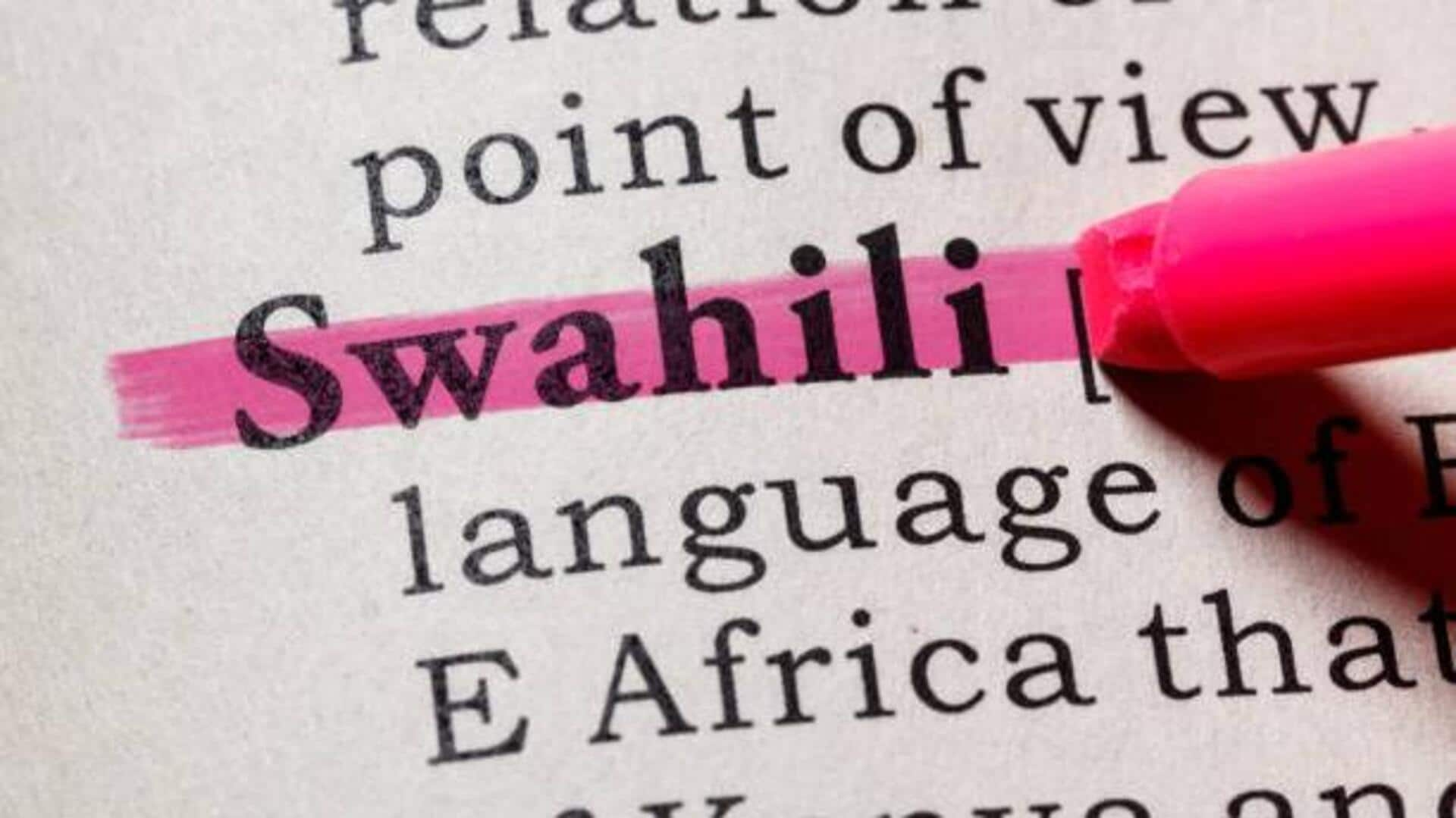
Want to speak Swahili? Start with these 5 tips
What's the story
Being one of the most widely spoken languages in East Africa, Swahili opens doors to understanding the rich cultures of the region. Speaking Swahili can add much to your travel experience and help you get connected with the locals on a deeper level. Here are some practical tips to master Swahili basics without much effort.
Basic phrases
Start with common phrases
Begin your Swahili journey by learning common phrases used in everyday conversations. Greetings like Jambo for hello and Asante for thank you are essential starting points. Familiarize yourself with polite expressions such as Tafadhali for please and Samahani for excuse me. These basic phrases will help you navigate social interactions smoothly and show respect to native speakers.
Pronunciation tips
Focus on pronunciation
Swahili pronunciation is pretty easy, considering it's a phonetic language. Every letter is pronounced the same way, making it easier to learn than the language with complicated rules. Focus on vowel sounds; they are pronounced as they look: "a" as in father, "e" as in bed, "i" as in machine, "o" as in more and "u" as in rule. Practicing them will enhance your clarity while speaking.
Vocabulary building
Learn essential vocabulary
Building a strong vocabulary foundation is key to communicating effectively. Start by learning words associated with daily activities like food items such as fruits and vegetables, or household objects such as table or chair. Build on your vocabulary by adding numbers (one to nine) and days of the week to your practice sessions.
Cultural insights
Understand cultural contexts
Understanding cultural contexts makes learning any language a lot more interesting. If you find yourself in a Swahili-speaking area, greetings are of utmost importance. Spending a few moments on proper salutations portrays you are polite and respectful of other people's customs. It also spreads positivity in communities where this beautiful language is spoken.